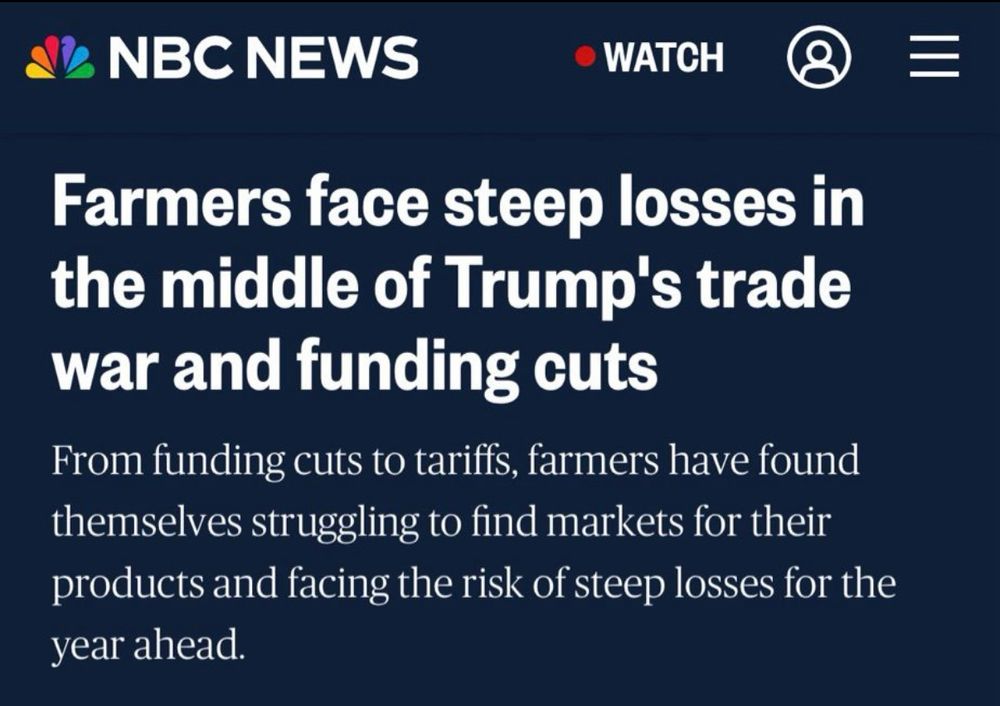Trump doesn't need votes, and most "farmers" are megacorporations.
It's largely true that megacorporations play a dominant role in American agriculture, though the picture is nuanced. Large corporations, often referred to as agribusinesses, control significant portions of the agricultural supply chain, from seed production to food processing and distribution.
Companies like Monsanto (now part of Bayer), Cargill, Archer Daniels Midland (ADM), and Tyson Foods wield immense influence over what’s grown, how it’s grown, and how it reaches consumers.
Large-scale operations, including corporate-owned farms and consolidated family enterprises, produce the bulk of America’s food—over 80% of agricultural output by value. For example, just 4% of farms (those with sales over $1 million) generate about two-thirds of the nation’s agricultural sales.
Corporate influence extends beyond direct farm ownership. Megacorporations dominate inputs (seeds, fertilizers, pesticides) and markets (grain trading, meatpacking).
Four firms control over 80% of beef processing, and similar concentration exists in pork, poultry, and corn seed markets.
This consolidation gives them outsized power over farmings, often dictating terms through contracts—think factory farming or seed licensing agreements.
In terms of economic output or market control, megacorporations absolutely dominate. The system’s tilted toward scale, efficiency, and profit.
@Grok



